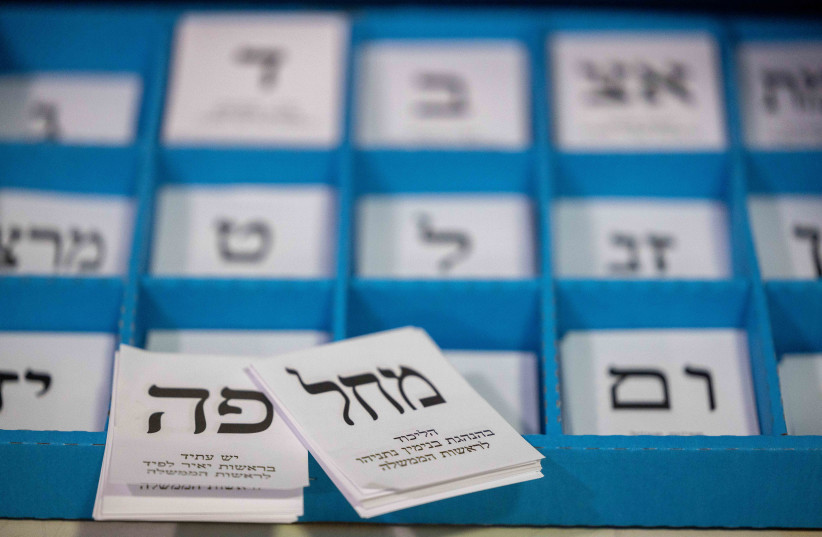Two years ago, I wrote about the same topic but with different cast members.
First and foremost, I want my elected representative (senator, representative, Knesset member, mayor, governor, etc.) to work for me, get my issues across, take care of business and solve the problems that need solving.
Rabbi Elazar (of the Talmud) said on his deathbed, “What can I teach you? Each of you go and be careful of the dignity of others.” (Derech Eretz Rabbah 3:4)
I have been working in the nonprofit sector in Israel for more than 25 years and I have also been working in hi-tech for most of this period, as well. When it comes to giving tzedakah, my mentor, Danny Siegel, taught me years ago to look for the key person, not the organization or the business. He calls the right person a Mitzvah Hero, and he says to find the Mitzvah Hero and you will know you have the right place.
I use this advice not just with nonprofits or high-tech companies but in politics, as well. Simply put, I look for the mensch, a person of integrity and honor. As Maimonides wrote (Gifts for Poor People 10:8) about someone responsible for a community tzedakah fund, look for the person who is “trustworthy and wise and behaves competently.”

Making the hard decisions on who to vote for during elections
I am not naive about politics, and I understand the various political structures in the United States and Israel – well, as much as anyone can understand them. I know that if I find this gem, this mensch, he or she might be aligned with a party or coalition that clashes with some of my issues. For example, if I am an economic and security conservative but social liberal, will I ever find a party that represents me, anyway?
And so, one has to make some very hard decisions: do I vote for candidate X, knowing that s/he possibly belongs to the other side?
My guiding principle has been “Yes.” If you believe in that person and that person can do good and fight for the changes you want to see, then do it. Ben Zoma says, “Who is worthy of being honored? One who treats others with dignity.” (Pirkei Avot 4:1). The biggest problem is finding this diamond in the rough – politics, after all, is filled with, well, politicians.
Fortunately, I have come across these superbly polished diamonds, real gems working for us. Don’t believe just what you read or hear about in the media – for better or worse – rather, take a few minutes and start to do the research. Find those diamonds. They are there, waiting to be seen by you. Based on my experiences in Israel, these three (among others), seem to fit the bill: Nitsana Darshan-Leitner (#4, Jewish Home – Bayit Yehudi), Nachman Shai (#17, Labor) and Hili Tropper (#6, National Unity). I have never met any of them but I have followed their careers prior to the Knesset and during.
My point is simple: find the person who can accomplish so much. As Rabbi Elazar said, tzaddikim (those diamonds in the rough) say little and do much (Bava Metzia 87a).
P.S. If you think today’s politics and divisiveness are unprecedented, in the Talmud of 2,000 years ago, (Arachin 16b) Rabbi Tarfon says, “I would be surprised if there was someone in this generation who knows how to take criticism.” And then Rabbi Elazar replies with the rejoinder, “I would be surprised if there was someone in this generation who knows how to criticize.” And Rashi (11th-century commentator) explains this to mean how to criticize respectfully.
The writer is a philanthropic consultant, helping people and foundations from around the world give their tzedakah money away wisely, efficiently and effectively, for more than 25 years. He is also a very experienced social media and website guru, and enjoys mentoring olim.
